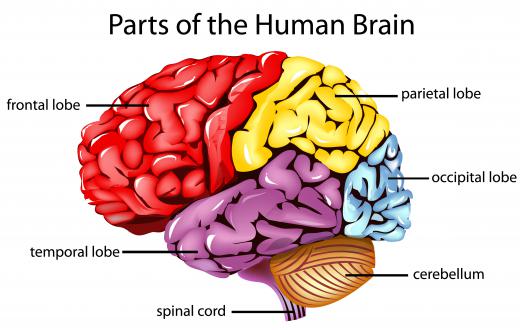What is IQ (Intelligence Quotient)?
 Tricia Christensen
Tricia Christensen
IQ is the acronym for intelligent quotient, and refers to a score given for several standardized intelligence tests. The first of these was developed by French psychologist Alfred Binet in 1905. He constructed the IQ test, as it would later be called, to determine which children might need additional help in scholarly pursuits. Today, the this test is commonly based on some model of the Stanford Binet Intelligence scale.
Not all intelligence can be measured by an IQ test. In fact, primarily, this test measures mathematical and spatial reasoning, logical ability, and language understanding. Thus a person who is speaking English as a second language might score poorly on the language comprehension aspects of a test, and it would not be an adequate measurement of intelligence.
Further, an IQ test does not measure things like life experience, wisdom, or personal qualities like being a good friend or a devoted spouse. So it is not a predictor of a person’s quality or worth, though it has occasionally been used as such.

Some things can negatively impact IQ score. These include malnutrition in children who are tested, and fetal alcohol syndrome, or maternal addiction. Mental retardation or conditions that deteriorate the brain’s capacity to remember like Alzheimer’s disease also causes scores to be lower. IQ may also be impacted by lack of appropriate education, often due to disparity in educational funding. If these disparities are corrected, then scores normally increase.

People can also train to take IQ tests, which can increase scoring. However, it is not known whether a person who scores higher because of training or repeated testing is actually more intelligent. It is verifiable that the trained person does better on the test than the person who is not trained.
There have been some studies on brain size and development and scores. Specifically the frontal lobe of the brain seems to be the most indicative method for prediction of scores. Larger frontal lobes tend to result in larger IQs.

Men and women seem to score approximately the same on IQ testing, though men exhibit a greater variance in testing, and have more very high and very low scores than do women. The American Psychological Association conducted studies on IQs and came up with the following conclusions:
- IQ score was a fairly good predictor for school performance.
- The score may also predict fairly well the degree to which a person may be successful in occupations.
- Scores tend to exhibit some racial bias.
- Test scores may be influenced by personal genetic history.

There is much contentious debate in evaluating the IQ test, as to whether nature or nurture most influences scores. As well, debate exists as to how much scores should be used as a predictor of behavior. Some are concerned that they might negatively affect the perception of colleges, private schools or employers if used to determine employability or acceptance into schools.
AS FEATURED ON:
AS FEATURED ON:

















Discussion Comments
As long as the brain is fully functional, one will always have satisfying IQ scores I believe, so practice will do.
There are some new findings that indicate that IQ range does not remain static in an individual. So just because somebody has scored high, or low as a child does not mean that the IQ levels can not be raised, or lowered as a child grows up.
A good prescription for a strong and healthy brain is to continue to be interested, to study, and to read throughout ones life. It will keep the brain active and functioning properly.
I think Mexicana is right, to some extent. There is absolutely no "real" way to reach into the brain and measure intelligence, as of now, but like many other fields of measurement, sets of rules and assumptions are used to make human intelligence fairly predictable.
There will always be some exceptions to the rules and there will always be some developments trying to close that gap.
Lately, for instance, neuroscientists have been working hard on finding tangibles, material, "real" ways of depicting human intelligence and its activities.
I am confident that in the near future we will be able to "read" people's minds and determine with compelling verifiability their level of intelligence. Until then let's go by the rules of assumptions
Responding to -mexicana. Not only are there "real" ways to measure intelligence, there is a vast selection of reliable and valid IQ tests. Trained and credentialed psychologists use many different types of tests to tap into a person's true intelligence.
For example, nonverbal tests of intelligence are often used.
I am confident that a licensed psychologist is able to assess a subject's intelligence with very high accuracy.
Also, many extremely intelligent people with learning disabilities tend to score lower on standardized tests or intelligence tests. The problem is not with their intelligence but with the manner in which the test is administered. There is no real way to just reach into the brain and measure intelligence.
Post your comments